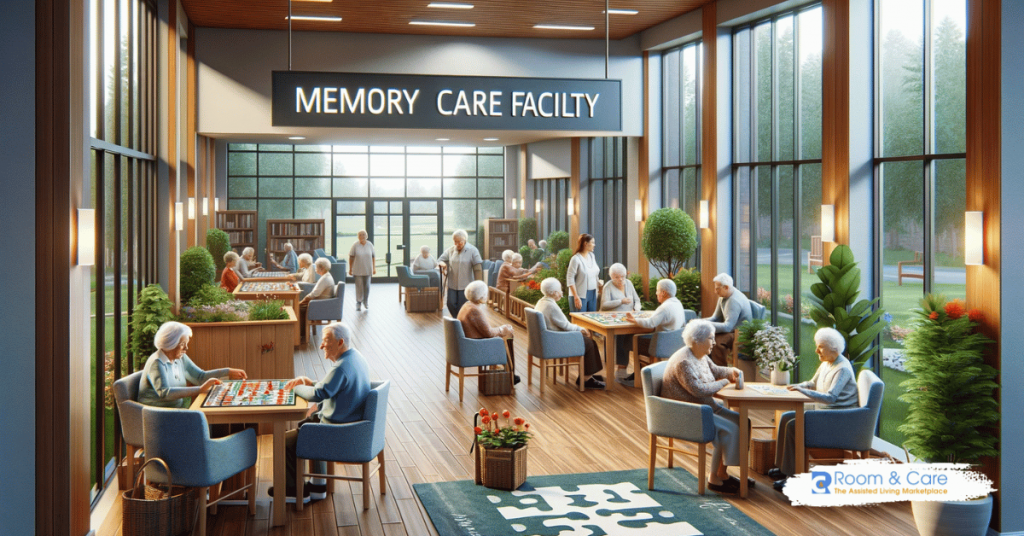Creating a Safe and Supportive Environment: In-Home Memory Care Basics
Establishing a caring and safe atmosphere for individuals calling for in-home memory care is critical to their well-being and lifestyle. From making certain safety within the home to utilizing reliable communication strategies and carrying out memory-friendly design components, there are important parts that contribute to an all natural care strategy. By focusing on developing a supportive ecological community that accommodates the one-of-a-kind needs of those with memory disabilities, caregivers can substantially boost the daily experiences of their liked ones.

Safe Living Setting
When giving at home memory care for people with cognitive impairments,Producing a hazard-free and protected living setting is paramount. Making sure the safety of the private with amnesia is crucial to avoid crashes and promote a sense of wellness. One crucial aspect of producing a risk-free living setting is to remove any prospective dangers that can lead to slips, trips, or falls. This consists of safeguarding loosened carpets, ensuring sufficient illumination in all areas of the home, and maintaining paths free from mess.
Additionally, it is very important to mount security functions such as grab bars in shower rooms and handrails along staircases to offer support and prevent crashes. In addition, making use of modern technology such as activity sensors and alarms can alert caretakers if the specific wanders or remains in distress. Producing a safe living environment additionally includes executing techniques to stop wandering, such as making use of door alarm systems or locks to limit accessibility to hazardous areas. By prioritizing safety and security procedures and eliminating potential hazards, caretakers can offer a safe and supportive atmosphere for individuals with cognitive problems getting at home memory treatment.
Reliable Communication Techniques
Carrying out tailored communication strategies is crucial in promoting purposeful interactions with people with cognitive problems in the context of in-home memory treatment. Reliable communication plays a critical role in producing an encouraging environment that improves the health and lifestyle for people with memory issues. When interacting with a person experiencing cognitive decrease, it is very important to utilize clear and easy language, preserve a tranquility and favorable tone, and give aesthetic cues to aid comprehension.
One secret approach is to exercise active listening, showing empathy, persistence, and respect during discussions. Non-verbal signs such as faces and body movement can also help convey understanding and support. Furthermore, utilizing reminiscence treatment by making use of or discussing past experiences music and art can use long-lasting memories, boosting and sparking links engagement.
Additionally, including normal regimens and regular communication patterns can supply a sense of experience and safety for individuals with memory problems. By applying these communication approaches, caretakers can establish significant links and advertise a sense of comfort and count on the in-home memory care setting.
Memory-Friendly Style
Given the relevance of creating a supportive atmosphere for individuals with memory problems with effective communication approaches, the incorporation of memory-friendly design components in the home comes to be crucial in optimizing their day-to-day experiences and general health. Memory-friendly layout focuses on enhancing safety and security, comfort, and self-reliance for individuals with cognitive problems. Simple modifications can make a considerable distinction, such as using contrasting colors see this to enhance exposure and reduce complication, including clear signage to assist navigating, and decreasing clutter to avoid sensory overload.
Integrating familiar elements from the individual's past, such as individual photos or favorite things, can evoke positive memories and create a sense of familiarity. By integrating these memory-friendly style elements, caregivers can supply a supportive and safe living room that enables people with memory concerns to keep their independence and quality of life. Charlotte Memory Care.
Daily Routine Preparation
When developing a daily routine for individuals with memory concerns, cautious planning is necessary to sustain their cognitive feature and overall health. Establishing an organized routine can help in reducing confusion, anxiousness, and disorientation usually experienced by those with memory disabilities. Begin by including acquainted tasks that align with the individual's choices and passions. Consistency in everyday regimens can give a complacency and security, aiding in the conservation of cognitive abilities.
It is vital to allow adequate time for each activity, lessening the need to hurry and avoiding potential irritation. Simple jobs like dish times, individual care, medicine monitoring, and exercise must be incorporated into the routine. In addition, incorporating regular periods of remainder and leisure can prevent exhaustion and frustration. Adaptability is key, as Look At This some days may need modifications based upon the person's state of mind and power levels. Consistently evaluating and adapting the everyday routine will certainly aid ensure its effectiveness in promoting a positive and soothing setting for people with memory challenges.
Support System Implementation
Establishing a robust network of supportive individuals plays a pivotal duty in boosting the top quality of treatment and wellness for individuals requiring memory assistance. Member of the family, good friends, health care experts, and community sources can all add to producing a strong assistance system. Interaction among these individuals is essential to make certain that the demands of the private with memory challenges are met properly.
Member of the family are often the key caregivers and create the backbone of the support group. They offer day-to-day care, psychological support, and friendship. It is important for member of the family to look for assistance and break when needed to avoid burnout and make sure the best feasible treatment for their loved one.
Along with family support, entailing healthcare experts such as specialists, medical professionals, and registered nurses can give customized care and assistance. These experts can use beneficial understandings, medical guidance, and support in handling the person's condition.

Verdict
In verdict, developing a encouraging and secure setting for people with memory treatment requirements is necessary for their health. By developing a secure living atmosphere, using efficient communication techniques, integrating memory-friendly design elements, planning day-to-day regimens, and carrying out a solid support system, caregivers can help boost the top quality of life for those with amnesia. These vital elements work with each other to develop a nurturing and equipping atmosphere that promotes freedom and improves general top quality of life.
Producing a safe and hazard-free living environment is extremely important when giving discover this info here in-home memory care for people with cognitive disabilities. By prioritizing safety and security steps and removing possible risks, caregivers can supply a protected and supportive setting for individuals with cognitive impairments getting in-home memory treatment.
Establishing a durable network of supportive people plays a pivotal duty in enhancing the top quality of care and health for individuals calling for memory support - Charlotte Memory Care. Interaction amongst these individuals is essential to make sure that the needs of the private with memory obstacles are satisfied properly
